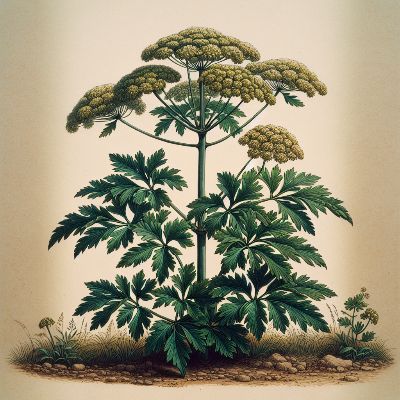What is Lovage Herb?
Lovage, also known as Levisticum officinale, is a perennial herb that belongs to the Apiaceae family. It is native to Southern Europe and Western Asia but is now widely cultivated in various parts of the world. It has a distinct aroma and taste, similar to celery, and is often referred to as “lovage celery.” The plant grows up to 6 feet tall and has large, dark green leaves that are commonly used in Traditional Polish cooking.
History and Cultural Significance in Polish Cusine.
Lovage has a long history of use in traditional Polish cuisine. It was introduced to Poland in the 16th century and has been an essential ingredient in many dishes since then. In Polish folklore, lovage is believed to have medicinal properties and was used to treat various ailments. It is also considered a symbol of love and was often given to loved ones as a token of affection.
Culinary Uses
Lovage herb is a versatile ingredient in Polish cooking and is used in various dishes, including soups, stews, sauces, and salads. Its leaves have a strong flavor, making it a great substitute for celery in recipes. It is also commonly used to season meats, especially in traditional Polish sausages. The seeds of that plant are also used as a spice, adding a warm and nutty flavor to dishes.
Nutritional Benefits
Apart from its culinary uses, lovage also offers several health benefits. It is a rich source of vitamins and minerals, including vitamin C, potassium, and manganese. It also contains antioxidants and has anti-inflammatory properties. In traditional Polish medicine, it was used to aid digestion and improve overall health.
How to Incorporate Lovage into Your Cooking
If you want to add a touch of traditional Polish flavor to your cooking, try using lovage herbs in your recipes. You can find fresh or dried lovage in most grocery stores or grow it in your herb garden. It pairs well with potatoes, carrots, and other root vegetables and can also be used to flavor broths and stocks. You can also make a refreshing tea by steeping the leaves in hot water.

